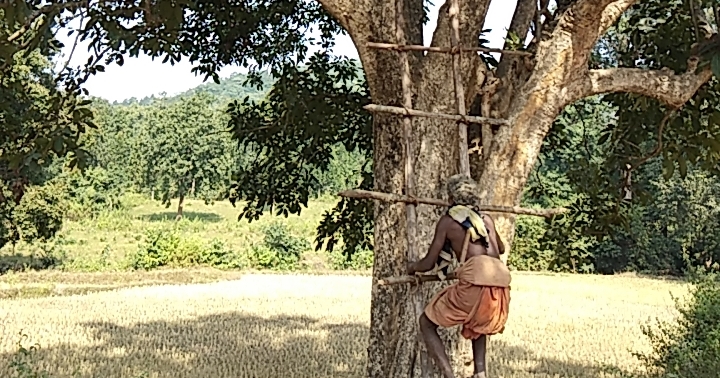Parajang: It is a known fact that farming is the most hard working of the labour practices. Farmers have to go through a lot of problems to raise their crops over season.
First, they have to collect seeds sow it and raise the saplings; protect it from animals and natural disasters while the crop grows. After the plants grow their word doubles to almost 24 hour shifts. They have to spend days including nights, guarding the standing crops, so as to avoid any damage by wild animals.
It is however, a bit harder for farmers of villages under Kankadahad and Parajang blocks in Dhenkanal district that mostly grow pulses. The farmers here have to, virtually live in jungle, atop tree houses, away from their families for months together, to guard their crops.
The farmers have to spend sleepless nights to keep wild animals, mostly elephants, boars and monkeys away from intruding into their agricultural fields.
They don’t see their children and family members for up to half-a-year. Sometimes, their wives prepare food and trek the hills to for a few moment together. Otherwise, they survive on forest produce until their crops have harvested.
Following warnings by forest officials upon killing of wild animals, the villagers restrain from taking aggressive postures however, they cannot let the crop they raised so strenuously go waste. Thus, they take the preventive measure of driving herds of elephants and groups of monkeys out of the cropland for months on, on their own.
As the monkeys mostly come during day and the elephants at night, the farmers have to keep a twenty four hour watch to avoid mishaps. They build temporary houses on tree tops and keep watch on their crop fields from inside them. The farmers stay in groups to avoid any kind of attack from wild animals or other stray incidences.
They also build scarecrows and place them in fields as a decoy warding of birds and animals alike. From August to January, around 1,000 temporary houses can be noticed on tree tops in these areas and farmers spend sleepless nights to protect their crops from animal attack.
However, life is not easy as it may seem like a picnic out in the woods. For, the farmers who stay away from family and children for months together, despite all these hard work; often end up with crop loss and debt ridden. Steps should be taken to increase their produce and provide them with alternative income options for the hard times.
“We carry food, torch, crackers, match box and winter clothes to climb the trees and guard our crops during night. We often burst crackers to ward off wild animals. But, we have no option to protect our crops as the government does not pay compensation for crop loss,” a farmer said.
According to agriculture office reports, paddy has been grown in 10,400 hectares (ha) and non-paddy crops in 10,236 (ha) in Parjang and 7,242 (ha) paddy and 11,525 non-paddy (ha) in Kankadahada block this kharif season.
“As there is no policy for compensation to sharecroppers, we are unable to compensate them for crop loss,” Chhabindra Behera, Deputy Director of Agriculture said.
PNN
